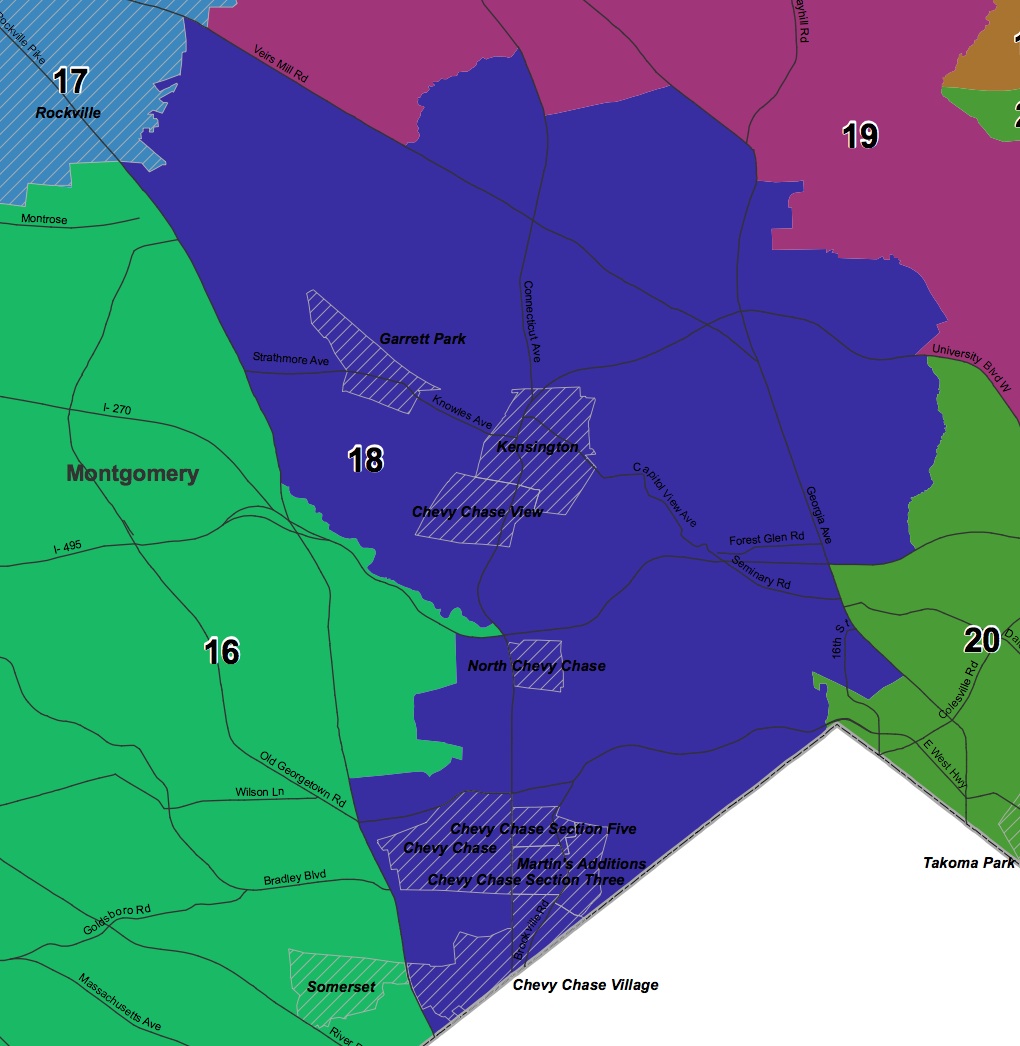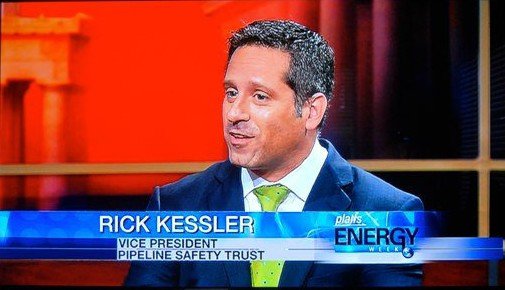 Montgomery County District 18
Montgomery County District 18
This is the first of a two part post on the delegate race in District 18. This morning, I profile the incumbents in the race. In the afternoon, I’ll take a look at the challengers and make an overall assessment.
District 18, centered on Chevy Chase, Kensington, Wheaton and part of Silver Spring, is economically and racially diverse. Redistricting moved it a bit west, dropping a couple of Silver Spring precincts and picking up Garrett Park and areas around White Flint. D18 includes many of Montgomery’s mini municipalities.
The Senate race is not a top primary to watch, so I’ll focus on the more interesting delegate race. All three incumbents, Al Carr, Ana Sol Gutiérrez, and Jeff Waldstriecher are seeking reelection. Ana’s repeated public musings about retirement enticed other good candidates into the race and made it more competitive.
The fundamental question about this race is whether any challenger can pick off one of the incumbents if they run as a united slate. The challengers will likely pick off some votes from each of them. But will enough come from any single incumbent or go to any single challenger to cause an incumbent to fail to win reelection?
I review the incumbents first before turning to the challengers. They are discussed in descending order of funds raised.
INCUMBENTS
Jeff Waldstreicher has $114K in his campaign account. In the last fundraising report, Jeff reported $14K in PAC donations, including big donations from MCGEO ($2K), the Firefighters ($2.5K) and the Trial Lawyers ($5K).
Jeff also received $33K in contributions in the past year. The largest is from Big Boyz Bail Bonds in Baltimore for $1K. However, most are from individuals, many of whom are local residents and activists whose names I recognize. He also received a donation from Joe Vallario, his committee chair.
Jeff is seeking his third term in the legislature and sits on the Judiciary Committee. His strength is that he is a disciplined and focused campaigner. Jeff is just relentless about knocking on doors and has substantial funds to aid his efforts at voter contact.
Al Carr has $42K in his campaign account. Al raised $20K over the past year. (Note: I am listed as one of the donors.) His donors generally gave smaller amounts than Jeff’s. Many are local names that I recognize with a particular accent on environmental activists.
Kensington Mayor Pete Fosselman was Al’s most generous donor, giving over $1K. Before serving in the House, Al was a Kensington Town Councilman. Al also loaned his campaign $29K. Only $200 came from a single PAC donation.
Al’s great strength is that he has a core base of strong supporters among environmentalists and municipalities in the district. He is very attentive to neighborhood concerns, which gives him a very nice base of volunteers and local advocates.
Ana Sol Gutiérrez has $28K in her campaign account. She raised close to $5K in individual contributions. She has more donors with Latino surnames and fewer from Kensington or Chevy Chase than Jeff or Al. I also noticed $50 from at-large County Councilmember George Leventhal.
Ana received $1600 in in-state PAC donations–$1K from AFSCME and $600 from the United Food and Commercial Workers. And another $4K from out-of-state PACs–$3K from the Laborers International Union and $1K from SEIU NY/NJ. Ana had to pay a $500 fine for accidentally continuing to solicit contributions on her web site during the session when fundraising is banned.
Ana’s great strength is simply that she has appeared on the ballot in every state election in this area since 1990, first for School Board and then for the House of Delegates. The senior Latino elected official in Maryland, she has a strong Latino base.
The real question for the incumbents is whether they will slate together. They dissolved the District 18 Democratic Team campaign account at Ana’s insistence. It seems clear that Jeff and Al will join incumbent Sen. Rich Madaleno on a common ticket. Despite reluctance, I suspect Ana will also slate with the other incumbents, as the advantages, particularly for a candidate with little money facing a strong challenge, are just too great to ignore.
This afternoon, I look at the challengers.






